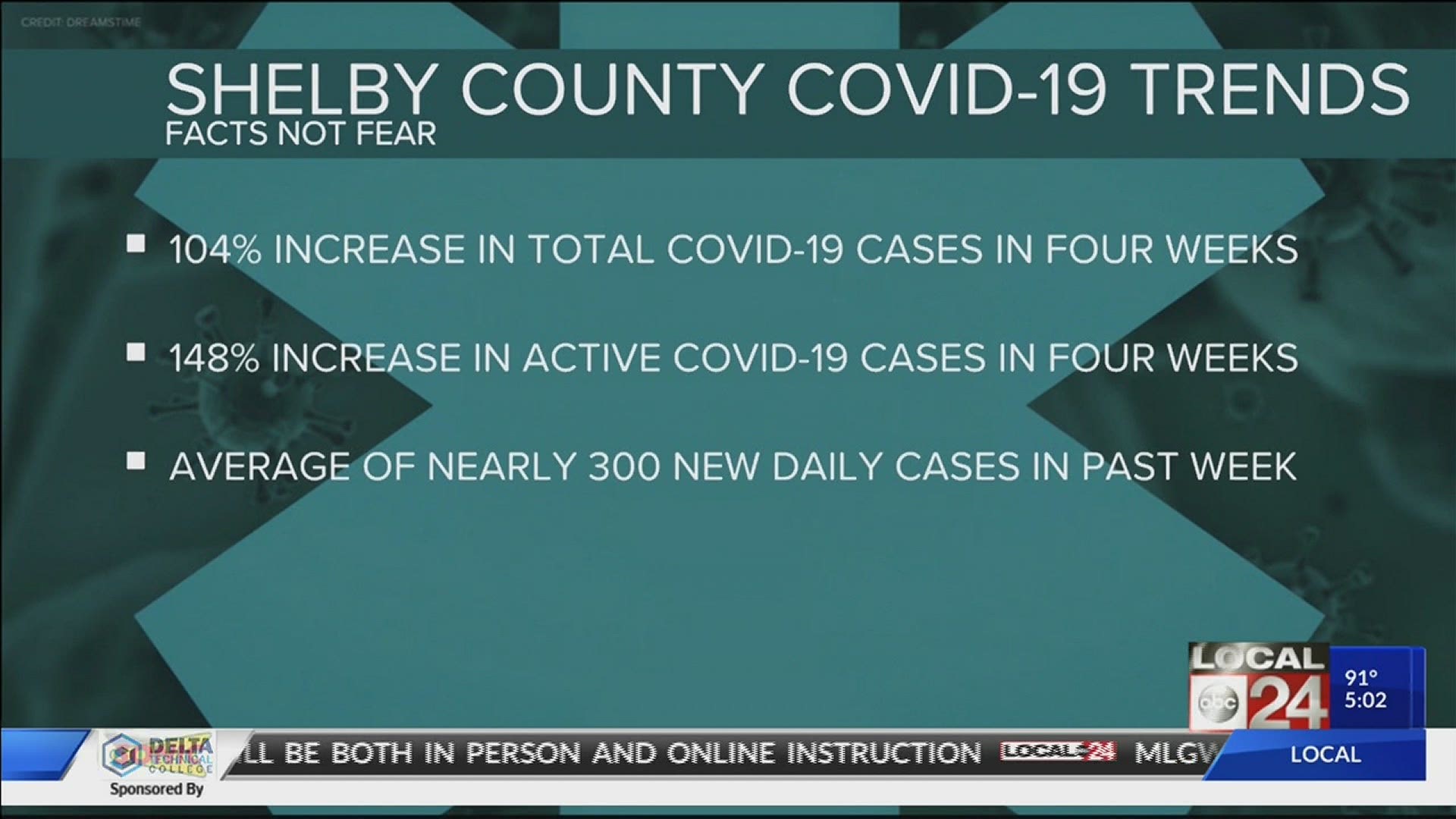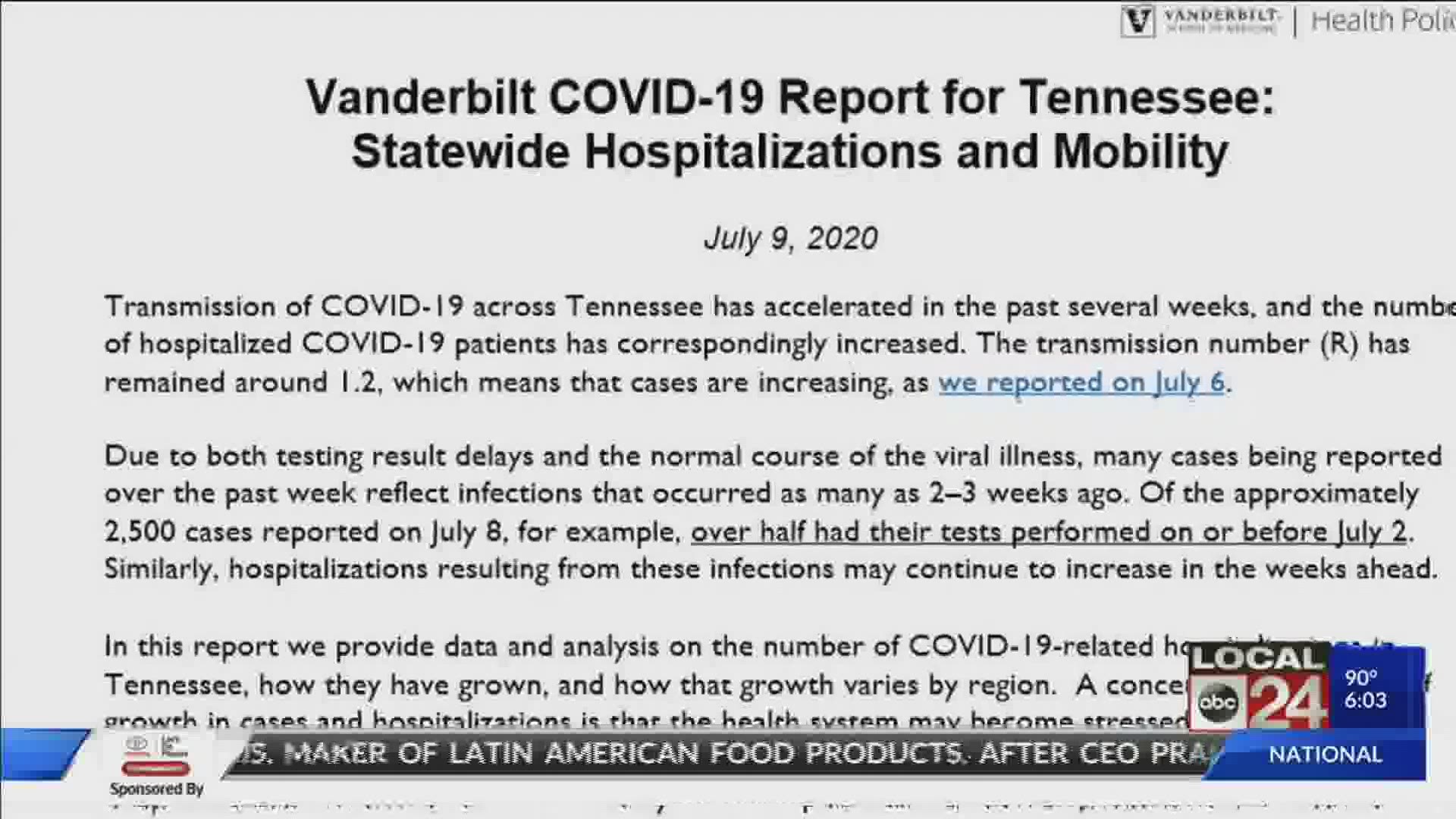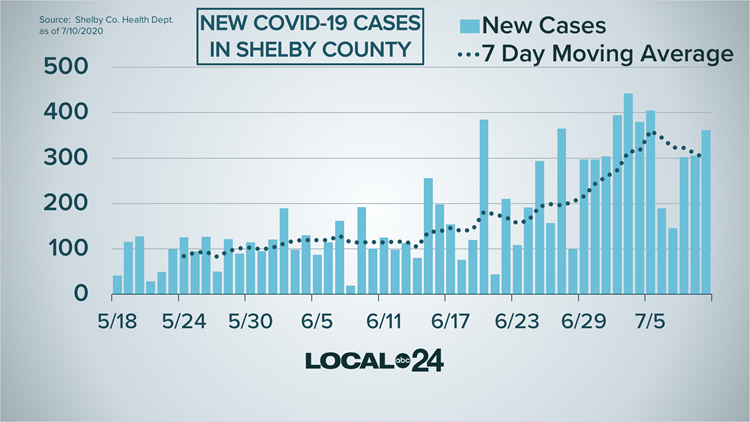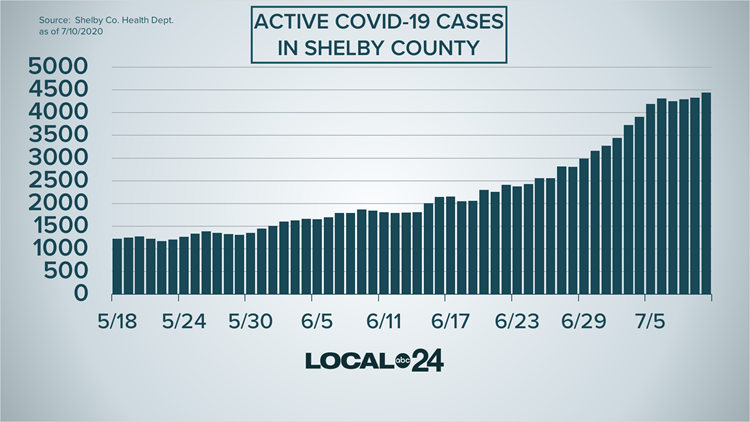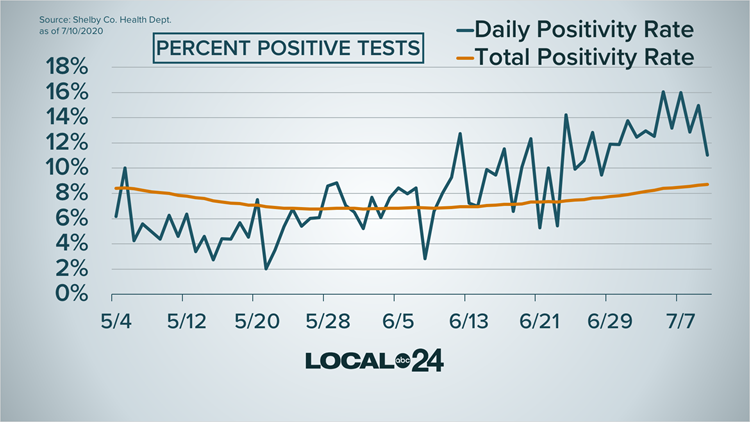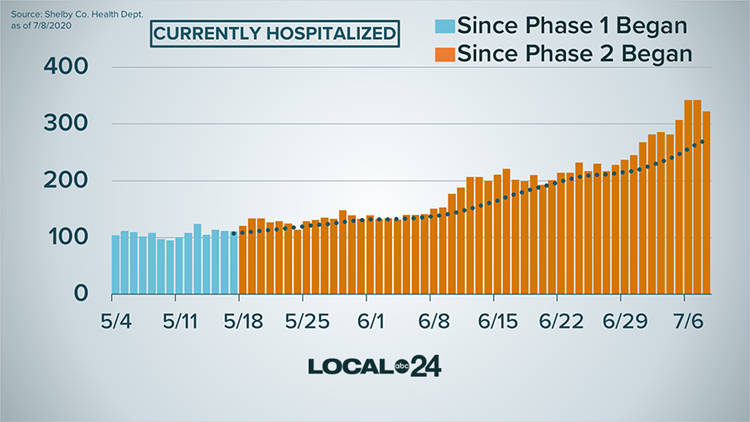MEMPHIS, Tenn. — According to data Friday from the Shelby County Health Department, the staffed acute care bed capacity is at 90%, with confirmed or suspected COVID-19 patients accounting for 14% of that capacity.
The staffed ICU bed capacity stood at 87%, with confirmed of suspected COVID-19 patients accounting for 31% of that capacity.
"That's what we are worried about, you see growth coming right now," Dr. Jeff Warren, a member of the Shelby County COVID-19 Joint Task Force.
Dr. Warren is on the medical front lines, treating COVID-19 patients in Shelby County.
"We have community spread. I've been seeing more in my office than I have at any point in time," Dr. Warren said.
The local COVID-19 numbers aren't slowing - they're accelerating, with total cases more than doubling and a 148% increase in active cases the past four weeks. In the last week, Shelby County averaged nearly 300 new daily reported cases.
"Do the math, what happens if the cases double in four weeks from now? From where we are, take that, do the math and you'll see, we will be overwhelmed," Dr. Warren said.
He's talking about local hospital capacity and the possibility the state may need to open a field hospital - on standby - at the former Commercial Appeal building in downtown Memphis.
Friday, Local 24 News learned: "the Governor's Unified Command Group is monitoring hospital capacity and prepared to make additional patient beds available, which could include activating the COVID-19 site in Memphis."
"The way you stop this forest fire is you don't give it any more trees. And the way you do that, is you do the social distancing, if you are sick you don't go out and act like you are the Bunsen burner in the fire," Dr. Warren said.
To combat the recent, rapid spread of COVID-19, Shelby County health experts earlier this week closed most bars indefinitely and curtailed restaurant hours.
They haven't ruled out other potential restrictions or temporary closures if the the COVID-19 numbers don't stabilize and slow down soon.
A new Vanderbilt study also shed light on why health experts are increasingly concerned about the surge of new local COVID-19 cases.
Their data showed a 21% spike in hospitalizations in the week between July 1 and July 8th, the highest weekly jump during the COVID-19 pandemic.
"I think it's very concerning, I think if you look at the increase in hospitalizations in just one week, that is a fairly large number," Dr. Melissa McPheeters with Vanderbilt's Department of Health Policy said. "This virus and those hospitalizations have a momentum, so to speak, so a lot of people are already infected. And then add to those hospitalization numbers, so it will take a number of weeks to see the effect."

